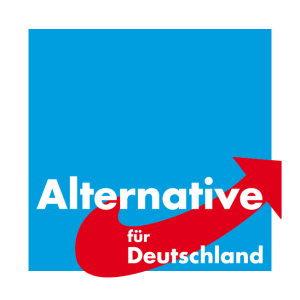The Rise of the AfD: A Turning Point for German Politics

Image Source: Armstrong Economics
As Germany grapples with a surge in populist sentiments, the Alternative for Germany (AfD) party has become a formidable contender in the political arena. Recent polling data reveals that the AfD has officially overtaken the long-dominant Christian Democratic Union (CDU) and Christian Social Union (CSU), gaining the title of the most popular party in Germany with nearly 25% of voter support. This monumental shift is not merely a numerical victory; it represents a deepening divide in German politics and a significant backlash against the established order.
AfD’s Climb to the Top
The AfD’s rise has been meteoric. Just last January, we reported on their ascendance to the second most popular party, but recent data from the Ispos poll indicates a solidifying trend: support for the AfD has risen by 4 percentage points since February, leaving the CDU/CSU trailing at 24%. Meanwhile, the Social Democratic Party (SPD) is facing a steady decline, now sitting at 15%. Voters seem to be signaling a demand for transformative political change, rather than the status quo.
Alice Weidel, Co-Chairwoman of the AfD, expressed her gratitude on social media, acknowledging this historic moment for the party. "For the first time in the AfD’s short history, we are the strongest party in Germany. Political change will come!" she proclaimed. Many citizens are clearly voicing their desire for alternatives to the traditional coalitions that have dominated the political landscape.
Understanding the Correlation with Immigration
While the AfD’s rise is notable, it is essential to delve into the underlying factors contributing to its popularity. The party is perceived as the frontrunner in addressing issues related to undocumented immigration and the strain it places on Germany’s welfare system. Recent statistics suggest that Germany has welcomed an estimated 14 million immigrants, with a significant portion residing in the country illegally. This influx has placed extraordinary pressure on social services and has, alarmingly, been linked to a rise in crime—a staggering 40% of violent crimes in the past year were allegedly committed by migrants.
The AfD is proposing drastic measures, including mass deportations, aiming to restore what they describe as "Germany for the Germans," and challenging the EU’s open-border policies that have been a hallmark since Angela Merkel’s controversial 2015 asylum policy. The socio-political ramifications of Merkel’s decision are now manifesting as increasing public resentment against the establishment’s handling of immigration.
The Economic Implications
From an economic perspective, this growing support for the AfD raises critical questions about the sustainability of Germany’s welfare state. In the past year alone, Germany has allocated 23.2 billion euros toward supporting refugees—down from 29.7 billion euros the previous year. With over 5% of the federal budget directed towards illegal residents, the financial implications are significant. This expenditure is not only contentious but also unsustainable, prompting calls for reevaluation of current immigration policies.
The narrative surrounding the AfD is often skewed by mainstream media, which frequently frames the party as an extremist group. However, it’s crucial to recognize that these sentiments represent a substantial segment of the population—nearly a quarter of voters. As a leader in economic insights, the Extreme Investor Network explores these dynamics further, examining how shifting political landscapes can affect market strategies and investment opportunities.
Conclusion: The Future of German Politics
The ascent of the AfD marks a pivotal moment in German and European politics, reflecting broader trends of nationalism and discontent with established political norms. As these developments unfold, it will be essential for investors and political analysts alike to monitor how these sentiments shape policy and economic conditions in Germany and beyond. The ongoing debate over immigration, welfare sustainability, and national identity will continue to define the political narrative in the months and years to come.
At the Extreme Investor Network, we recognize that these changes can present both challenges and unique investment opportunities for those willing to navigate the complexities of shifting political landscapes. Stay tuned for more insights and strategies as we dive deeper into the intersections of economics and politics in this ever-evolving environment.

